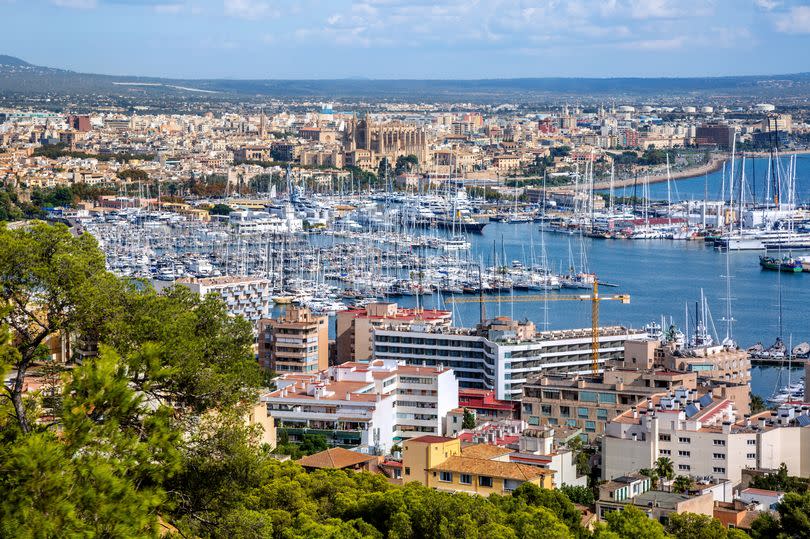Millions of tourists didn't stay in registered accommodation at European hotspot

Over two million tourists who holidayed in the Balearic Islands, Spain, stayed in 'unregistered' tourist accommodation rather than hotels and registered holiday rentals last year. In 2023, 2.3 million tourists instead opted to stay in properties either owned by friends or relatives, according to new statistics.
A large proportion of visitors to the Balearic Islands stayed with the likes of family, but a “significant” number stayed in rental accommodation that is not registered for tourist stays, which contributed to the holiday hotspots’ mass tourism issue, according to Majorca Daily Bulletin. Statistics from Frontur on tourist movements revealed that the 2.3 million people who visited the islands stayed in properties of friends or relatives in 2023, in comparison to 2.06 million visitors who stayed in registered tourist holiday rentals.
According to Majorca Daily Bulletin, this indicates that a large number of visitors are holidaying in private homes or unregistered accommodations, putting pressure on overcrowding in the local areas. Statistics showed that 975,105 tourists spent their time in the Balearics in second homes.
In 2023, a total of 3.2 million visitors didn't spend any money on hotels, apartments or the tourist tax, as these are classified under "non-tourist accommodation" by Frontur. Out of the 17.8 million people that visited the islands throughout the year, around 20% did not pay for traditional accommodation, such as hotels.
However, the statistics indicated the majority of people holidaying in the Balearics did stay in hotels (12.03 million, 67.5%), while 2.06 million stayed in official holiday rentals, such as apartments (11.57%). The popular European destination counted two million visitors passing through its borders on a single day in August.
Combining the 1.2 million residents with the 600,000 legal hotel and holiday rental accommodations, there are around 300,000 people unaccounted for in regulated accommodations, many of whom arrive on cruise ships, private boats or stay with friends and in second homes.
To be licenced as an official tourist rental, a property must have an Estancias Turísticas en Viviendas (ETV), which establishes the requirements for properties for tourist use. It includes aspects such as obtaining the tourist license, obligations of owners, habitability and safety conditions. For more information on the legal requirements for tourist rentals in the Balearics, visit here.
There is also a difference between a 'tourist homestay' and 'tourist apartment'. The former refers to renting a property completely, without offering additional services such as daily cleaning or reception, according to Holidu. Thus meaning to use a conventional property for tourist purposes for a period of time.
For a 'tourist apartment', this means tourist accommodations located in buildings or complexes that offer additional services such as reception, cleaning and hotel-like amenities. Mostly in tourist areas for short periods of time.
If you're worried about unregistered tourist accommodation, it's best to contact the local Spanish councils for more advice. Find out more information on tourist rentals in the Balearics here.
The Illes Balears tourist offices have been contacted for comment.

 Yahoo News
Yahoo News 
